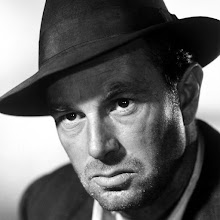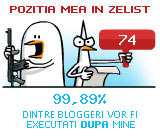We will not change systems, though, without a crisis. But don’t worry, we’re getting there.
We’re currently caught in two loops: One is that more population growth and more global warming together are pushing up food prices; rising food prices cause political instability in the Middle East, which leads to higher oil prices, which leads to higher food prices, which leads to more instability.
At the same time, improved productivity means fewer people are needed in every factory to produce more stuff. So if we want to have more jobs, we need more factories. More factories making more stuff make more global warming, and that is where the two loops meet.
But Gilding is actually an eco-optimist. As the impact of the imminent Great Disruption hits us, he says, “our response will be proportionally dramatic, mobilizing as we do in war. We will change at a scale and speed we can barely imagine today, completely transforming our economy, including our energy and transport industries, in just a few short decades.”
We will realize, he predicts, that the consumer-driven growth model is broken and we have to move to a more happiness-driven growth model, based on people working less and owning less.
“How many people,” Gilding asks, “lie on their death bed and say, ‘I wish I had worked harder or built more shareholder value,’ and how many say, ‘I wish I had gone to more ballgames, read more books to my kids, taken more walks?’ To do that, you need a growth model based on giving people more time to enjoy life, but with less stuff.”
Sounds utopian? Gilding insists he is a realist.
“We are heading for a crisis-driven choice,” he says. “We either allow collapse to overtake us or develop a new sustainable economic model. We will choose the latter. We may be slow, but we’re not stupid.””
Paul Gildin, Australian environmentalist-entrepreneur, in “The Great Disruption: Why the Climate Crisis Will Bring On the End of Shopping and the Birth of a New World.”
Quoted by Thomas Friedman in his New York Times editorial "The Earth Is Full" (7 June 2011)
Courtesy of Camil Stoenescu
Miroase a bulă AI la Oracle
Acum 9 ore





2 comentarii:
"We either allow collapse to overtake us or develop a new sustainable economic model. We will choose the latter. "
Eu spun ca vom avea parte de colaps orice ar fi. Varianta optimista e ca vom fi fortati sa adoptam un nou model economic. Varianta pesimista e ca vom fi fortati de complexul militar industrial sa devenim sclavi hraniti pe cartele (cei ce se vor dovedi cat de cat utili, restul impuscati direct).
Waw! Iata un om cu adevarat optimist. Bea incet, ca-i rece! :) :) :) :rofl:
Trimiteți un comentariu